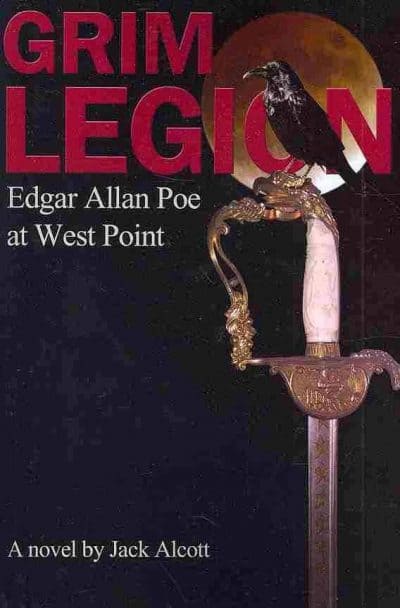Description
Grim Legion is set at West Point in the month’s leading up to the court martial of Cadet Edgar Allan Poe—it’s a little-known fact that Poe was expelled from the military academy in 1831. To this day, the reasons for the 21-year old’s trial are sketchy. My version of history fills in the missing pieces: Poe and his crazier, opium-addicted brother, the talented and tragic Henry Poe, try to solve a series of gruesome murders near the famed academy—only to become suspects themselves.
It’s the tale of a promising young cadet who, in trying to do his duty, blunders into a military conspiracy and is plunged into a world of horror, mystery, and intrigue that is his destiny.
Poe’s short tenure at the Point occurred at the dawn of the Industrial Revolution, and the novel pits the writer’s Romantic sensibilities against the nascent machine age. The story unfolds among the Gothic crags and deep shadows of the Hudson River highlands.
Henry Poe wrote and published more than 20 short stories and poems in Southern literary magazines before his brother had penned a single tale. Older than Edgar by two years, Henry was something of a rake and romantic who ran off to sea, sailed up the Amazon, fought in the Greek civil war, and visited Russia, all in the late 1820s.
A tubercular alcoholic, Henry’s tragic life was cut short at the age of 24 before he had a chance to fully develop his talent. Soon after his death, his brother began to write in earnest, achieving the immortality that forever escaped Henry.
Grim Legion brings Henry back from the dead, exploring the close relationship between the two brothers and Henry’s influence on the master of horror and mystery fiction. The novel attempts to rescue Henry Poe from obscurity and restore him to his rightful place in early American literature—as a character and a major influence on his brother, if not a well-known author in his own right.





Comments